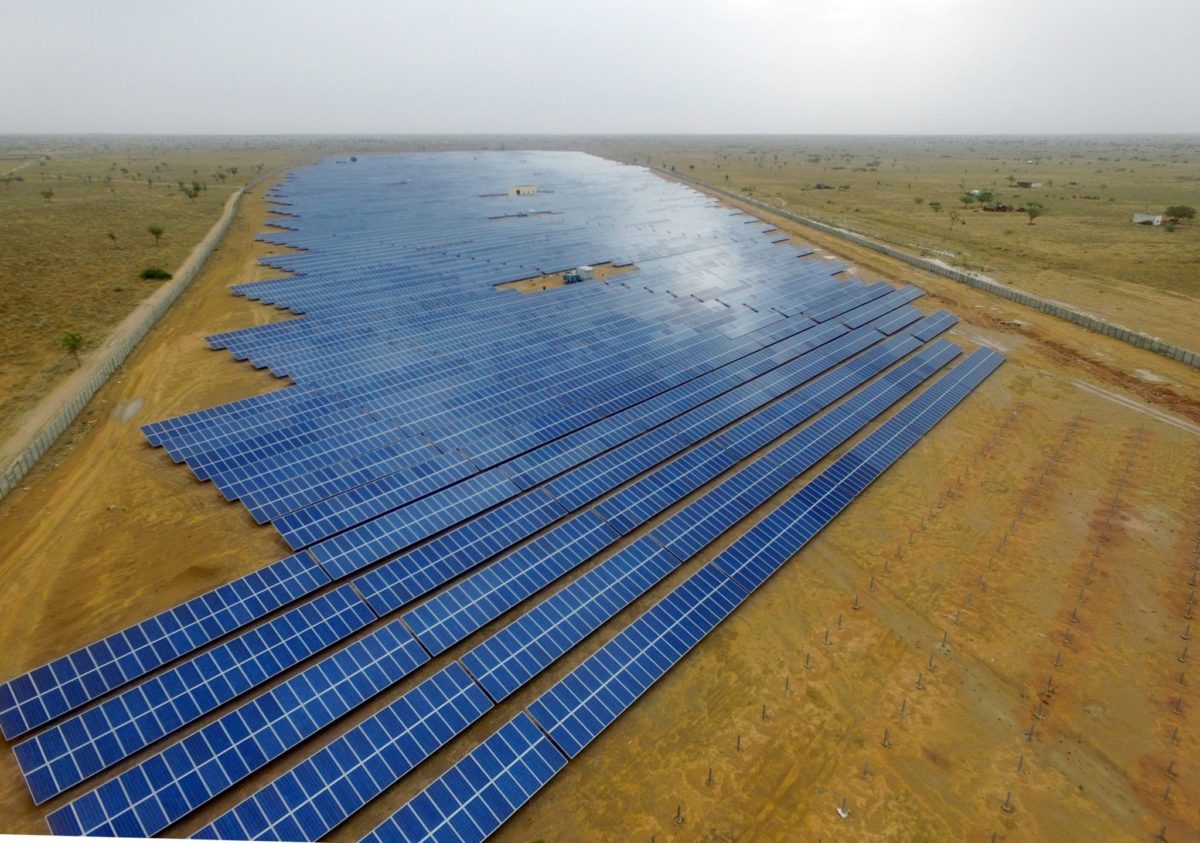Greater attention is to be given to boosting and supporting India’s domestic solar PV manufacturing industry following the news that the Ministry of New and Renewable Energy (MNRE) is to introduce a scheme designed to support the installation of 7.5 GW solar capacity using home-made components.
Under proposals for phase 2 of its CPSU Program, the MNRE has outlined plans to support wherever it can the domestic manufacturing solar sector in India. Faced with an impending anti-dumping case against Chinese, Taiwanese and Malaysian solar cells – but also recently having fallen foul of World Trade Organization (WTO) rules on its imposition of a Domestic Content Requirement (DCR) – the government has to chart a very careful path between protectionism and the free market.
Hence, the MNRE’s proposal in a report titled National Solar Mission – An Appraisal, presented during a Lok Sabha committee meeting on energy late last week, comprehensively lays out the ministry will tackle these challenges facing the sector.
Chiefly, the overall aim is to support existing PV manufacturers in India to enable them to compete against foreign suppliers. The difficulty here is simply a matter of cost: Chinese solar modules are much cheaper than those produced domestically, so MNRE is to run a cost analysis looking at where the price differentials lie across the production chain, and hopefully identifying ways to bridge these gaps.
The creation of a captive market is key, believes the MNRE, to boosting domestic capacity, and so a scheme to ringfence 7.5 GW of solar installations to be built using only Indian-made solar cells and modules has been submitted and is currently under proposal. This would include a rooftop element requiring the use of domestic modules for projects installed under the CFA/Incentive.
Perhaps most tellingly, the MNRE will also incentivize the creation of fully vertically integrated, state-of-the-art solar PV manufacturing facilities in India – the lack of which has for too long held back wider acceptance of Indian-made solar components.
This plan will involve “working at encouraging development of world-class facilities” by “addressing the issues of technology obsolescence and fragmented, small-scale operations that are the major challenges currently being faced by the domestic solar PV manufacturing industry in India”, said the MNRE.
The main vision is to build an infrastructure that is globally competitive and able to supply a vital component to India’s energy security. To achieve this, the MNRE is considering a study on the critical elements involved in the entire solar production chain, the optimum scale of operation and the overall cost structure of such production facilities.
“This may be the answer to avoid a disruptive anti-dumping tariff imposition by providing a market for domestic manufacturers – if this proposal can get approved,” said Raj Prabhu, CEO of Mercom Capital Group. “However, it needs to be done in a way that does not violate the WTO ruling and the CPSUs will have to actually auction and procure solar through DCR, even though these projects will be expensive compared to Non-DCR projects.”
So far, the MNRE has allocated just over 1 GW of solar capacity under phase 1 of the CPSU Program, with around 445 MW of capacity already commissioned.
This content is protected by copyright and may not be reused. If you want to cooperate with us and would like to reuse some of our content, please contact: editors@pv-magazine.com.








By submitting this form you agree to pv magazine using your data for the purposes of publishing your comment.
Your personal data will only be disclosed or otherwise transmitted to third parties for the purposes of spam filtering or if this is necessary for technical maintenance of the website. Any other transfer to third parties will not take place unless this is justified on the basis of applicable data protection regulations or if pv magazine is legally obliged to do so.
You may revoke this consent at any time with effect for the future, in which case your personal data will be deleted immediately. Otherwise, your data will be deleted if pv magazine has processed your request or the purpose of data storage is fulfilled.
Further information on data privacy can be found in our Data Protection Policy.